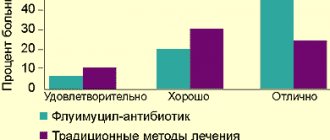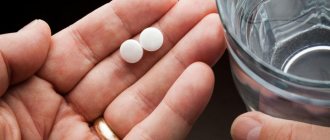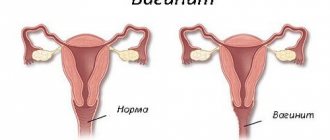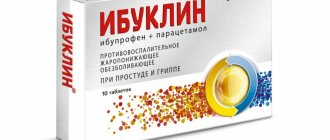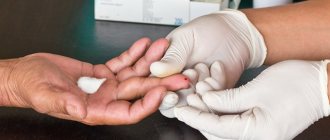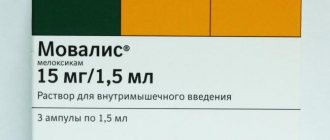As Viktor Maleev, adviser to the Research Institute of Epidemiology of Rospotrebnadzor, told RBC, effective means have not yet been created in the world and doctors use combinations of existing ones to treat coronavirus. The Ministry of Health specified which ones in the list of recommended drugs. These included hydroxychloroquine, interferon, lopinavir and ritonavir.
At the beginning of September, the Ministry of Health released the updated, eighth version of recommendations for the prevention, diagnosis and treatment of the new coronavirus infection COVID-19. Available infographics are published on the ministry’s website.
As experts note, the drugs umifenovir and recombinant interferon alpha (IFN-α) can be used to prevent coronavirus. After contact with someone infected with SARS-CoV-2, you should take hydroxychloroquine.
The material was commented on and checked by Natalya Valerievna Polenova, candidate of medical sciences, family doctor, cardiologist, pediatric cardiologist, nutritionist at GMS Clinic.
What we know about COVID-19
COVID-19 is an infectious disease caused by the coronavirus SARS-CoV-2. Discovered in China at the end of 2021, by May 15 it had infected 4.4 million people worldwide. Most of those with symptoms complain of fever, cough and difficulty breathing. Special medications and vaccines against COVID-19 have not yet been developed. However, virologist and head of the MIPT genome engineering laboratory Pavel Volchkov said that the first effective cure for coronavirus infection may appear in the fall.
In general, the Ministry of Health recommends the use of six drugs to treat coronavirus. these are favipiravir, remdesivir, umifenovir, hydroxychloroquine, azithromycin and interferon alfa.
Hydroxychloroquine and mefloquine
Doctors have been using drugs based on chloroquine for more than 70 years to treat malaria and autoimmune diseases (for example, systemic lupus erythematosus). Scientists have found that the active substance is also effective against the SARS-CoV-2 virus. In March, the Chinese holding Shanghai Pharmaceuticals provided Russia with the drug hydroxychloroquine (a derivative of chloroquine) for the treatment of COVID-19. The Ministry of Health did not identify any contraindications and allowed its use, donating more than 68 thousand packages to hospitals, despite the fact that hydroxychloroquine is not registered in Russia.
Scientists are still arguing about the validity of using hydroxychloroquine. Research by French infectious disease specialist Didier Raoult showed positive results. But the Associated Press published data from American studies. An analysis of medical records of patients treated with the drug showed that hydroxychloroquine was less effective than standard treatments.
In April, the Federal Medical and Biological Agency of the Russian Federation conducted clinical trials of mefloquine (an analogue of hydroxychloroquine approved in Russia). Scientists found out how effective and safe this antimalarial drug is. According to preliminary data from a study involving 347 patients, after using mefloquine, positive dynamics were noted in 78% of cases. The FMBA will provide its final conclusions at the end of May.
Lopinavir and ritonavir
A combination of antiviral drugs called kaletra is used to treat HIV. According to WHO, the use of the drug in combination with other medications is effective in the fight against coronavirus. At the end of January, the Ministry of Health included lopinavir with ritovinar in the list of drugs recommended for COVID-19 as antiviral therapy. As a result, the demand and sales of kaletra increased tenfold. Experts warn that uncontrolled use of the drug without a doctor's prescription can cause harm to health, including diarrhea and liver damage.
Chinese scientists have found that lopinavir and ritonavir are not effective in treating mild to moderate COVID-19. Taking medications does not improve the clinical picture; moreover, it may cause side effects. The experiment involved 86 patients, of which 34 people took a combination of lopinavir and ritonavir, and 17 patients did not receive any drugs. After two weeks, both groups showed similar results, but those taking the medications experienced side effects.
Sources
- Virology. Methodological materials: Textbook. method. aid for students biol. fak. / Authors-comp. E. V. Glinskaya, E. S. Tuchina, S. V. Petrov. — Saratov. — 2013.
- Mechanisms of transmission of pathogens and ecological and epidemiological classification of infectious and parasitic human diseases. / V. I. Sergevnin. — Epidemiology and vaccine prevention. — No. 2(63). — 2012.
- Approximate list of essential medicines. 21st list, 2021—Copenhagen: WHO Regional Office for Europe, 2020.
- Samoshchenkova I.F., Garankina R.Yu., Bobkova E.A., Omelchenko A.A. Study of the range of antiviral drugs with in-depth product analysis of the drug Normomed // Bulletin of the North-Eastern Federal University named after. M.K. Amosova. Series "Medical Sciences". — 2021. — No. 1 (22). — P. 41-51.
- Telnova E.A., Shchepin V.O., Zagoruichenko A.A. Antiviral drugs: from creation to the present time // Bulletin of the National Research Institute of Public Health named after. ON THE. Semashko. - 2021. - No. 4. - P. 108-119.
- Shestakova I.V. Antiviral drugs // Infectious diseases: news, opinions, training. - 2015. - No. 1. - P. 77-86.
Remdesivir
Remdesivir is used to treat Ebola fever. Canadian scientists from the University of Alberta have found that the drug blocks the reproduction of coronavirus. Studies have proven the effectiveness of the antiviral agent in the treatment of MERS respiratory syndrome and SARS-CoV, the RNA structure of which is similar to coronavirus. Virologists obtained identical results in the case of SARS-CoV-2, which causes COVID-19, and concluded that remdesivir could be used for treatment. The New England Journal of Medicine also published the results of a study in which the use of the drug improved the condition of 68% of patients. Japanese Prime Minister Shinzo Abe said in parliament on April 28 that he plans to authorize the use of remdesevir to treat COVID-19. In the United States, the drug was successfully tested, and on May 2, the Department of Sanitary Inspection issued an emergency permit for its use.
Oseltamivir
The trade names of this flu medicine are Tamiflu, Nomides, Oseltamivir phosphate. Oseltamivir acts on the influenza virus in the same way as the previous drug. When using it, the illness lasts 2 days less. Oseltamivir can be prescribed to adults and children over 1 year of age. For children from one to 8 years old, it is better to use a suspension.
Possible side effects include dizziness, nausea, vomiting, and diarrhea. Contraindications to the use of oseltamivir: individual intolerance and renal failure. This flu medicine is available by prescription.
Oseltamivir
APN01
The Austrian biotechnology company APEIRON Biologics AG has begun clinical trials of the drug APN01, which was developed in the early 2000s. Scientists have discovered that the ACE2 protein, which is part of it, suppresses infections caused by viruses of the SARS group. It also helps protect the lungs during respiratory failure.
The authorities of Austria, Germany and Denmark agreed to conduct clinical trials of the drug. During the study, 200 patients with COVID-19 will receive APN01. Then virologists will evaluate the effect of the drug, and also analyze its effectiveness and safety for patients who require artificial ventilation.
Ribavirin
It is quite difficult to assess the effectiveness and safety of ribavirin. On the one hand, this drug inhibits the reproduction of the vast majority of viruses, on the other, the mechanism of action of ribavirin is not fully understood. At the end of January, the Ministry of Health recommended the use of this antiviral drug to treat coronavirus. It is prescribed to children for respiratory syncytial infection (a rare type of acute respiratory viral infection), which causes severe lung damage. The drug is used for severe influenza, for measles in children with immunodeficiency, and in combination with interferon ribavirin to treat viral hepatitis C.
However, Academician of the Russian Academy of Sciences Alexander Chuchalin criticized the recommendations of the Ministry of Health. When prescribing the drug to adults, it is necessary to take into account its teratogenicity (threat of disruption of embryonic development), therefore ribavirin is strictly contraindicated during pregnancy. Despite the fact that the drug inhibits the reproduction of many viruses, it is very toxic and causes many side effects.
At the end of March, the Ministry of Health excluded ribavirin from the list of recommended drugs for the treatment of COVID-19.
Types of antiviral agents
With all the diversity of viruses, the choice of drugs with proven effectiveness is relatively small. Some of them stimulate the patient’s own immunity. Others act on the principle of antibodies, preventing infection from entering the cell. Still others block the virus at a certain stage of its life cycle. Based on their purpose, the following medications are distinguished:
- anti-influenza;
- antiherpetic;
- anticytomegalovirus;
- antiretroviral (against HIV infection);
- drugs with an extended spectrum of action (interferons, lamivudine, ribavirin).
Based on the methods of influencing a viral infection, drugs are divided into large groups of local and systemic action⁶.
- Chemotherapy drugs are the most studied and widespread. They suppress the stages of virus reproduction without significantly affecting the cells themselves.
- Interferons are distinguished by their versatility, broad action and maximum safety for the body.
- Inducers of interferon synthesis - stimulate the formation of interferon in the body and have a wide spectrum of action.
- Immunomodulators - improve the insufficient functions of immunocytes (cells of the immune system).
The World Health Organization allocates only antiherpetic, antiretroviral, hepatitis and other drugs, which include ribavirin, valganciclovir³.
There are plenty of antiviral drugs in pharmacies, but not all of them are effective. Don't get carried away with self-medication! Photo: alfexe / Depositphotos
Ivermectin
Australian scientists from Monash University and the Royal Melbourne Hospital have discovered an antiparasitic agent that virtually destroys the SARS-CoV-2 virus within 48 hours, reducing its presence by 99%. According to researchers, the use of ivermectin will help avoid severe complications of COVID-19, as well as prevent the spread of the virus. During the experiments, ivermectin was added to cells infected with SARS-CoV-2. After 24 hours, the proportion of viral RNAs decreased by 93%, and after 48 hours, the presence of the virus decreased by 99%.
A single treatment with ivermectin can reduce the virus by 5 thousand times in 48 hours, scientists say. The drug is approved by WHO.
Nelfinavir
Nelfinavir is used in combination with other antiviral drugs to treat HIV. The study was carried out by Japanese scientists. According to the data obtained, the drug is able to block the reproduction of SARS-CoV-2. Virologists studied nine similar drugs and found that nelfinavir is effective even in small doses. Therefore, it is recommended to include it in the list of potentially effective drugs for the treatment of COVID-19.
What to do while there is no vaccine
- wear medical masks when visiting public places;
- on the street and in crowded places, maintain a distance of at least 1.5 m from others;
- avoid contact with people who have been exposed to the virus;
- stay at home if possible;
- wash your hands thoroughly with soap;
- use a disinfectant with an alcohol content of at least 60%;
- do not touch your face;
- monitor hygiene in the house.
Causes of viral diseases
Each virus, entering the human body, finds exactly those cells on which it can parasitize and attaches to them. Most viruses remain latent in the body, as they are controlled by the immune system. However, when it decreases significantly, control also weakens. The virus enters the cell, divides inside it and leaves the membrane. Most often, the cell dies¹.
The process of virus division and the death of a large number of cells is accompanied by the release of toxic substances into the body. They cause inflammation, fever and other specific reactions, for example, skin rashes, the appearance of benign neoplasms on the skin or mucous membranes.
When a viral infection is activated, the immune system begins to release antibodies in response. They attach to the virus and prevent it from entering cells. However, with weak immunity or significant infection, this protection is not enough. We need antiviral drugs that are effective against the particular virus that attacks the body.
Figure 1. Classification of viruses. Image: Thomas Splettstoesser (www.scistyle.com) / Wikipedia (CC BY-SA 3.0)
Expert commentary
What medications, besides antiviral drugs and antibiotics, are recommended for the treatment of COVID-19 by the Russian Ministry of Health?
According to the eighth version of the resolution “Prevention, diagnosis and treatment of new coronavirus infection (COVID-19)” of the Ministry of Health of the Russian Federation, patients infected with the SARS-CoV-2 virus should receive pathogenetic and supportive symptomatic therapy if necessary. The first group of drugs includes, first of all: glucocorticosteroids (GCS), interleukin inhibitors (tocilizumab, canakinumab), anticoagulants (enoxaparin, fraxiparin).
Glucocorticosteroids are able to prevent the release of cytokines, substances responsible for the development of a violent inflammatory reaction, which can lead to a very dangerous complication “cytokine storm”. GCS may be useful in the treatment of severe forms of COVID-19 to prevent irreversible tissue damage and uncontrolled multiple organ failure.
It should be noted that for mild to moderate severity of the disease, that is, for patients not receiving oxygen, GCS are not indicated. So there is not the slightest need to buy hormones from pharmacies for use at home.
Drugs from the group of cytokine inhibitors are used when the lung parenchyma is damaged by more than 50%, that is, stage CT-3, CT-4 in combination with signs of increasing intoxication: long-term fever, very high levels of inflammatory markers in the blood.
In groups of patients at high risk of thrombus formation, for the prevention of so-called coagulopathies, it is advisable to prescribe anticoagulants used subcutaneously. Evidence of the effectiveness of oral anticoagulants for COVID-19 is not yet sufficient, however, if the patient was taking them before the disease, the drug should be continued until then. High-risk groups include patients with cardiovascular pathology, diabetes, and obesity.
How is symptomatic treatment of coronavirus carried out?
Drugs for symptomatic treatment of COVID-19 include antipyretic drugs, antitussive drugs that improve sputum discharge. Paracetamol is recognized as the safest antipyretic drug.
There is no need to wait until a certain level of fever is reached before using an antipyretic drug. In the presence of headache and muscle pain, poor tolerance to symptoms of intoxication and fever, it is possible to use drugs even at a relatively low body temperature.
What can you take to prevent coronavirus?
The most important characteristics of a diet that helps strengthen the immune system are: adequate daily calorie intake, sufficient intake of protein and a number of micronutrients, especially vitamin C, D, A, iron and zinc, increased intake of dietary fiber and, if necessary, probiotics, maintaining water balance. According to the clinical recommendations of the Russian Association of Endocrinologists, to prevent vitamin D deficiency in adults aged 18-50 years, it is recommended to receive at least 600-800 IU of the vitamin per day. People over 50 years old - at least 800-1000 IU of vitamin D per day.
There are some indirect indications of zinc's potential antiviral effect against COVID-19, although their biomedical relevance remains to be explored. Based on recent data on the clinical course of the disease, it appears that zinc may have protective effects against COVID-19 by reducing the incidence of pneumonia, preventing ventilator-induced lung injury, and improving antibacterial and antiviral immunity, especially in older adults.
Ascorbic acid (vitamin C, AA) takes part in such vital physiological processes as hormone production, collagen synthesis, stimulation of the immune system, etc. The latter effect can be due to both the direct antiviral effect of AA and its anti-inflammatory and antioxidant properties.
TOP 15 antiviral drugs
Next, we will look at the active ingredients that form the basis of the most effective medicines. Please note that their names may not coincide with the names of the drugs that are supplied to pharmacy chains.
Famciclovir
One of the most effective antiviral drugs for herpes infections. Its bioavailability, that is, the ability to be absorbed in the body, is 77% (other drugs - no more than 65%). It is available in tablet form and is quickly absorbed into the gastrointestinal tract. Effective for herpes zoster, postherpetic neuralgia, recurrent genital herpes. The course of treatment is 1 week with 250-750 mg per day.
To treat external herpes, another version of this substance is used - penciclovir. It is released in the form of an ointment.
Contraindications: pregnancy, hypersensitivity to the active substance.
Ribavirin
It has a wide spectrum of action and is included in the lists of the most effective drugs for influenza A and B, various acute respiratory viral infections, herpes infections of types 1-3, hepatitis A, B and C, measles, and SARS. Suitable for the treatment of exotic infections such as Central Asian hemorrhagic fever or West Nile fever.
Available in the form of capsules, tablets, as well as a liquid concentrate to prepare solutions for droppers. Bioavailability is 65%, absorption into tissue occurs almost immediately.
Contraindications: pregnancy, lactation, thyroid disease, acute pathologies of the kidneys and liver.
Amantadine
Included in the list of the best antiviral drugs for the prevention and treatment of influenza A2 in the early stages, adenoviral conjunctivitis. Doctors often include it in a comprehensive treatment program for chronic hepatitis C.
It is supplied to retail chains under different trade names in the form of 100 mg tablets or solution for infusion. The therapeutic or prophylactic course lasts from 4-5 to 10-12 days with a daily dose of 100-200 mg.
Contraindications: pregnancy, acute/chronic kidney pathologies. Use with caution in case of thyrotoxicosis and severe mental disorders.
Rimantadine
An effective preventive and therapeutic agent for various strains of influenza. In addition to its effect on viruses, it also has an antitoxic effect. It is distinguished by its rapid action and rapid absorption in the gastrointestinal tract. May be tablets, powder, baby syrup. The course of treatment for influenza is carried out over 4-5 days.
Contraindications: age under 12 years, pregnancy, breastfeeding, thyrotoxicosis, liver disease, kidney disease in the acute stage.
Figure 2. Why antibiotics are not indicated for viral infections. Image: MedPortal
Ambenonium chloride
The active substance is a synthetic amino acid. This is a good antiviral drug for influenza, polio, and viral encephalitis. Activates the activity of leukocytes, which helps the body cope with infection. The maximum effect occurs within 30-60 minutes after administration.
Available in two forms - tablets and powder of 1, 5 and 10 mg. Treatment of influenza is carried out for 3-4 days with a double dose of 5 mg. For other infections, the therapy program consists of 15-20 doses of 5-10 mg daily or every other day.
Contraindications: pregnancy, angina pectoris, atherosclerosis, bronchial asthma, bradycardia, epilepsy.
Prevention
Most medications against influenza and ARVI can be taken in prophylactic doses before the onset of seasonal exacerbation. The dosage should be determined by the doctor after consultation.
Interferons
A number of active ingredients (interferon alpha, beta, gamma and their subtypes) obtained with the participation of human blood cells - leukocytes. Included in all lists of the best antiviral drugs for humans. Certain interferons act on various viruses and are used to treat hepatitis B, C, D, keratitis and keratoconjunctivitis, ARVI and influenza, warts and condylomas, papillomavirus infections, HIV, cytomegaly.
Interferons are used for children and adults of any age. They not only suppress viruses, but also stimulate the immune system. They are produced in the form of tablets, capsules, solutions, powders, rectal suppositories, ointments, gels, and lyophilisate. The dose and treatment program depend on the disease and the type of interferon.
Contraindications: high sensitivity to protein drugs, pregnancy and breastfeeding, renal and liver failure, epilepsy.
Polyadenylic acid + polyuridylic acid
A complex drug against viral eye diseases: adenoviral and herpetic conjunctivitis, keratitis, keratouveitis and other pathologies. Stimulates the production of interferon in the body. Promotes an increase in hematopoietic cells. Has antitumor effect.
Available in the form of a lyophilisate powder for the preparation of solutions. It is most often used for eye drops (the course most often lasts 2-4 weeks) or injections under the conjunctiva.
Contraindications: none.
Sodium ribonucleate
The active substance is ribonucleic acid yeast, which is obtained from mushrooms. Included in the lists of the best remedies for the prevention of influenza, ARVI, treatment of herpes infections, chlamydia, diseases of the skin and mucous membranes caused by viruses. A good drug against arboviral infections transmitted by blood-sucking insects. In addition to antiviral activity, it stimulates the immune system due to the formation of interferon, suppresses tumor growth, and has an antibacterial effect.
Available in powder form for the preparation of solutions for intravenous infusion or applications.
Contraindications: pregnancy, allergies, severe pathologies of the blood, liver, kidneys.
Tiloron
Stimulates the formation of various interferons in the body and thereby strengthens the immune system. The antiviral effect is less pronounced. Bioavailability is 60%.
Included in various ratings of drugs for the treatment/prevention of influenza, ARVI. Prescribed for infection with herpes, encephalomyelitis, encephalitis, hepatitis A, B, C, rabies. It is supplied to pharmacy chains in the form of 125 mg tablets. To prevent influenza, the drug is taken in a course of 4-6 weeks, 1 tablet per week. The course of treatment depends on the disease.
Contraindications: pregnancy, breastfeeding.
Figure 3. How to wear a protective mask correctly. Source: WHO
Meglumine acridone acetate
An immunomodulator that stimulates the body's production of interferons. It also has antiviral and antitumor effects. Since the highest concentration of interferons is achieved in the brain, the drug is used in the treatment of neuroinfections: encephalitis, serous meningitis and other pathologies. Effective for herpetic infections, hepatitis A, B, C, D.
It goes on sale in ampoules and tablets. The appointment is carried out according to a certain scheme, which is prescribed by the doctor.
Contraindications: pregnancy, breastfeeding.
Drugs against coronaviruses
The Russian Ministry of Health has compiled a list of drugs that can be used against COVID-19⁵:
- favipiravir;
- hydroxychloroquine;
- azithromycin + hydroxychloroquine;
- interferon-alpha;
- remdesivir.
Sodium oxodihydroacridinyl acetate
One of the most popular immunostimulants for preventive and therapeutic purposes. Used for respiratory, herpetic infections, acute and chronic hepatitis B, C, encephalitis, viral skin infections. Activates bone marrow stem cells, promotes the active formation of interferons.
Bioavailability reaches 90%. Available in 125 mg ampoules. It is administered by injection. The course of treatment depends on the disease.
Contraindications: liver cirrhosis, severe kidney pathologies.
Zidovudine
The active substance is included in the rating of the most popular in the treatment of HIV infection and hepatitis B, C, D. The effect is that the drug is integrated into the DNA chains of the virus during their formation. This disrupts the process of division and reproduction of the virus.
It is sold in the pharmacy chain in the form of capsules and tablets under various names. It is well absorbed through the intestinal tissue and quickly spreads throughout the body. Take the medicine orally 200 mg 6 times a day.
Contraindications: myopathy, neutropenia, fatty liver, anemia.
Didanosine
One of the main drugs against HIV infection. Bioavailability reaches 89%. It comes onto the market most often in the form of capsules with a volume of 125, 200, 250, 400 mg, less often in powder form. Use orally on an empty stomach twice a day. The daily dose is determined by the doctor.
Contraindications: pregnancy, cardiovascular failure, pancreatitis, gout.
Umifenovir
This active substance forms the basis of popular drugs against influenza viruses, parainfluenza, adenovirus, rhinovirus, and some coronaviruses. It is also used against rotavirus in children over 6 years of age.
Helps strengthen the immune system and increase the body's resistance to viral infections. Reduces the risk of complications associated with viruses. It is produced mainly in capsules. The course of treatment is 5-7 days, prevention - 2-3 weeks.
Contraindications: age under 6 years, pregnancy.
Ganciclovir
Refers to drugs against cytomegaloviruses. It is integrated into the DNA chain and suppresses viral synthesis. It is also used for acute superficial keratitis, the cause of which is the herpes simplex virus.
It is sold in tablets for oral administration or bottles of 500 mg in the form of a lyophilisate for the preparation of an infusion solution or eye drops.
Contraindications: pregnancy, severe kidney pathologies, age under 12 years.

